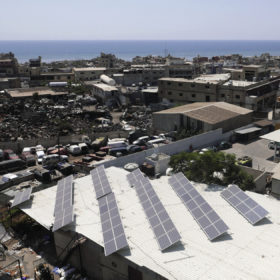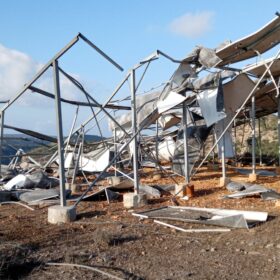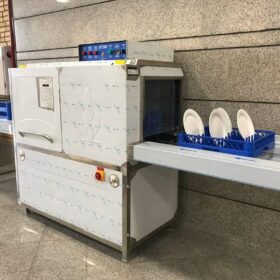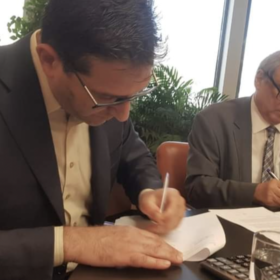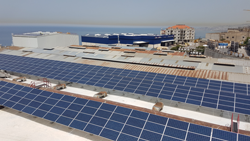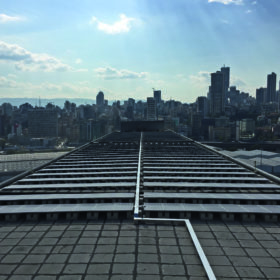Lebanon introduces peer-to-peer renewable energy trading
The Lebanese parliament has ratified a new law that allows peer-to-peer renewable energy trading between private sector entities, in addition to enshrining net metering in the country’s legal system for the first time.
Self-financed solar array destroyed in Lebanese farming village
One of the project architects behind a solar power system in a southern Lebanese village tells pv magazine that the 200-panel array – which pumped water from an underground well for roughly 400 families – was allegedly destroyed earlier this month by Israeli forces. The community needs help rebuilding it, he says.
Using air conditioning to cool down PV modules, dry dishes
An international research team has investigated how air conditioning may be used to reduce the operating temperature of PV panels. The researchers not only found that the proposed approach is technically viable, but they also tested the use of excess heat from the panels for drying dishes.
Lebanese households fight economic crisis with record rooftop PV additions
Lebanon’s persistent political and economic meltdown, resulting in widespread poverty and an incapacitated electric utility, has led citizens to adopt off-grid solar-plus-battery systems. Over the past two years, they have installed a record-breaking 900 MW of PV.
Lebanon signs 11 solar PPAs, but financial closure remains challenging
Lebanon’s government has signed power purchase agreements (PPAs) for 11 projects with 165 MW of PV capacity. Investors have one year to reach financial closure.
Contractor kicks off tender for 7 MW of solar in Lebanon
DT Global, a US-based development firm, is seeking engineering, procurement and construction (EPC) contractors to build a PV plant with 5 MW to 7 MW of capacity in Lebanon.
Lebanese bank introduces solar loan scheme for households
Lebanon’s Banque De L’Habitat is rolling out a new scheme to provide loans to help Lebanese households buy and install PV systems. It is running the scheme with the Lebanese Center for Energy Conservation (LCEC), which is providing technical assistance.
Lebanon issues 11 solar licenses for 165 MW
The Lebanese government has approved 11 licenses for 165 MW of PV capacity. The licenses are part of a 180 MW solar tender that the country initiated in January 2017.
Lebanon discourages used PV panel imports
Amid reports of panels that should be destined for recycling instead being sold off in the Middle East and Africa, and the potential to bulk out products with non-functioning solar cells, a Beirut-based body has advised the government to shut down second-hand imports.
The weekend read: Will Lebanon’s solar rise?
A year after a sudden explosion in Beirut killed more than 200 people, destroying solar installations in the port and sending the country into a complete downfall, a question emerges: Can Lebanon use this experience to set its economy on a new sustainable pathway, supported by a viable energy sector? Solar energy offers some lessons.
